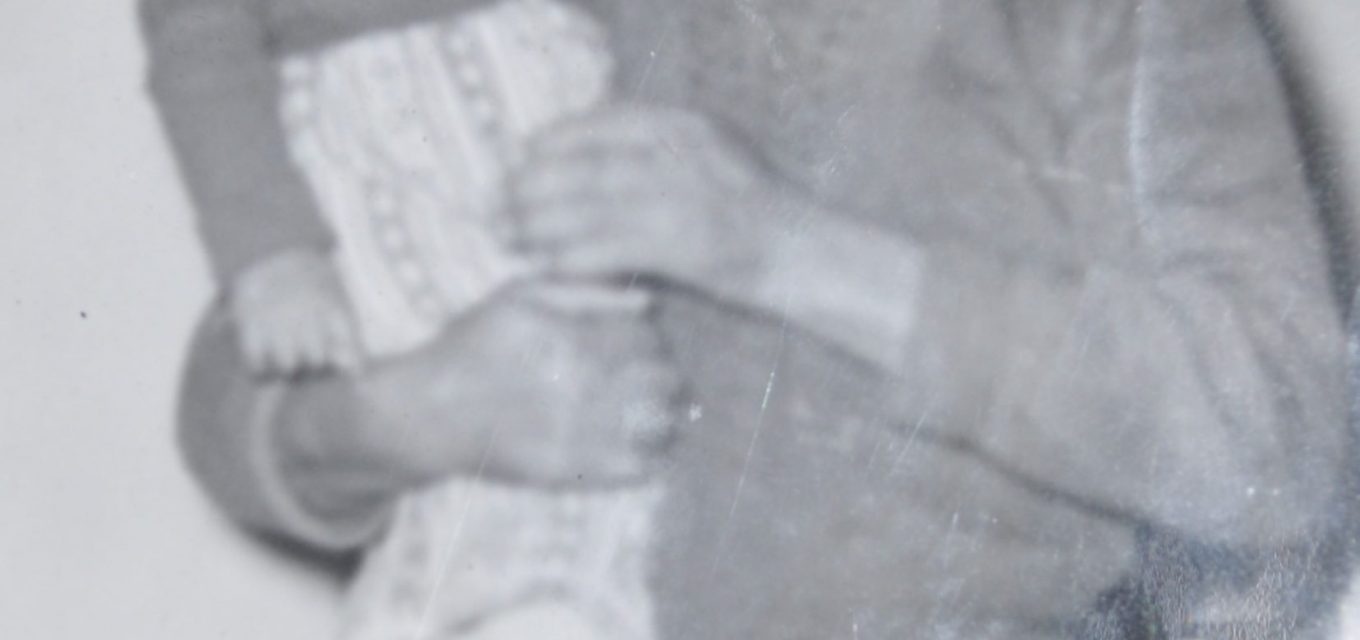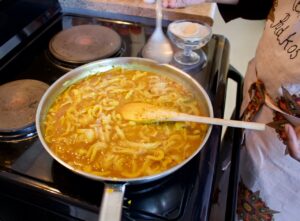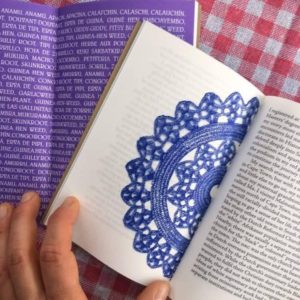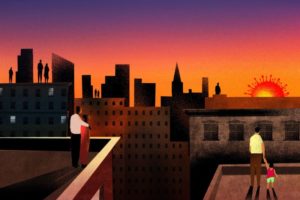I hear the key in the door first, then the jangle of coins in his pocket. I race down the passage, trying to get there before my two brothers so that I can lay claim to one of his feet. We scramble to hop on, wrapping our arms around his trunk-like legs. Slowly he hobbles into the house weighed down by two children, with the unlucky third dancing around in front of him.
Ma yells at us, “Stop bothering your grandfather! He is tired!” We know that he leaves home in the dark to deliver bread for the bakery. By the time his shift ends we are back from school. We jump off his giant feet and allow him to enter his bedroom but follow closely on his heels, eager for the treat that he usually has in one of his pockets.
He sits down on the bed and then he opens his dark cupboard door, releasing smells of another era. Carefully pressed suits thick with the scent of mothballs hang, ready for service, alongside stiffly starched white shirts. Two pairs of shoes, one black, one brown, gleaming with polish, sit side by side at the bottom of the cupboard. Underwear and handkerchiefs are stacked in piles on the shelves. Black and white pictures which recall happier days are tucked into the mirror at angles.
In the second drawer from the top is a yellow money box. “UBS” it says in blue letters. From the pockets of his khaki coat he takes out the coins which announced his arrival earlier. He allows me to put them into the money box. “For your education,” he reminds me.
In the photograph of me in my paternal grandfather’s arms in the mid-1960s, I imagine that he is envisioning the different life that I would have because of the education he was determined to provide for me. As far back as I can remember, my grandfather had been telling me that my brothers would be able to take care of themselves but that I would have to study further so that I could be independent. In retrospect this was quite revolutionary on his part, considering not only that no one in the family had completed matric or attended university, but also that I was a girl. He had passed standard six (grade 8) and worked as a driver of a delivery van for Duens Bakery, leaving for work while we were still asleep and coming home soon after we returned from school in the afternoon. From the pockets of the khaki coat he wore, he would take out any loose change and hand them to me to deposit into the yellow money box which said “UBS”(United Building Society) in blue letters that he kept in his cupboard. Every deposit was accompanied by the reminder that this was for my education. By the time I had finished school he had saved enough to pay for my first year of university.
My pride at being the first person in my family to complete matric and make it to university was tempered by the humiliation of having to apply to the Department of Coloured Affairs for permission to attend the University of Cape Town which was for ‘whites-only’. I was granted permission on the basis that the ‘coloured’ University of the Western Cape did not offer the Occupational Therapy degree I wished to pursue.
Entering university was such a cultural onslaught that I might as well have gone to study in a different country. There were social, academic and financial challenges. My grandfather had managed to save enough to cover the fees for the first year and I had to find a bursary or take out a bank loan if I was to continue. As ‘black’ students we were constantly reminded of our inferior status on campus. In our anatomy practical sessions, even the cadavers we worked on had to be ‘black’. During clinical practice in our third and fourth years of study, we were not allowed to treat ‘white’ patients, which limited the placements and experience we could be exposed to. Restricting access to education was one of the ways in which those in power could control the lives of ‘black’ people. By placing limitations on the kind of education and the level of education ‘blacks’ could attain, the government ensured that they would remain less educated than ‘whites’, therefore less qualified and unable to rise above the station in life which the government deemed fit.
My grandfather died of cancer soon after I completed my first year of study and so was not alive to see me graduate, but the learning path he set me on changed the course of my life.



